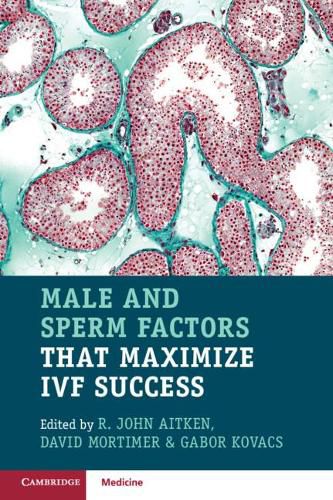Readings Newsletter
Become a Readings Member to make your shopping experience even easier.
Sign in or sign up for free!
You’re not far away from qualifying for FREE standard shipping within Australia
You’ve qualified for FREE standard shipping within Australia
The cart is loading…






Male factor infertility is receiving greater emphasis in IVF programs. This book reviews the scientific evidence for various medical, environmental and lifestyle factors that can affect male fertility, such as chromosome abnormalities, age, anti-sperm antibodies and endocrine disruptors. Part of a four-book series on improving IVF success, this volume subsequently explores a range of treatments and strategies to improve sperm quality, including FSH treatment and antioxidants. It also discusses methods to prevent male infertility from childhood through to adulthood. Concise, practical and evidence-based - and with insights from global experts in the field - this text will enable gynecologists, urologists and andrologists to make evidence-based decisions that can influence the success rate of fertilization in subsequent IVF cycles.
$9.00 standard shipping within Australia
FREE standard shipping within Australia for orders over $100.00
Express & International shipping calculated at checkout
Male factor infertility is receiving greater emphasis in IVF programs. This book reviews the scientific evidence for various medical, environmental and lifestyle factors that can affect male fertility, such as chromosome abnormalities, age, anti-sperm antibodies and endocrine disruptors. Part of a four-book series on improving IVF success, this volume subsequently explores a range of treatments and strategies to improve sperm quality, including FSH treatment and antioxidants. It also discusses methods to prevent male infertility from childhood through to adulthood. Concise, practical and evidence-based - and with insights from global experts in the field - this text will enable gynecologists, urologists and andrologists to make evidence-based decisions that can influence the success rate of fertilization in subsequent IVF cycles.